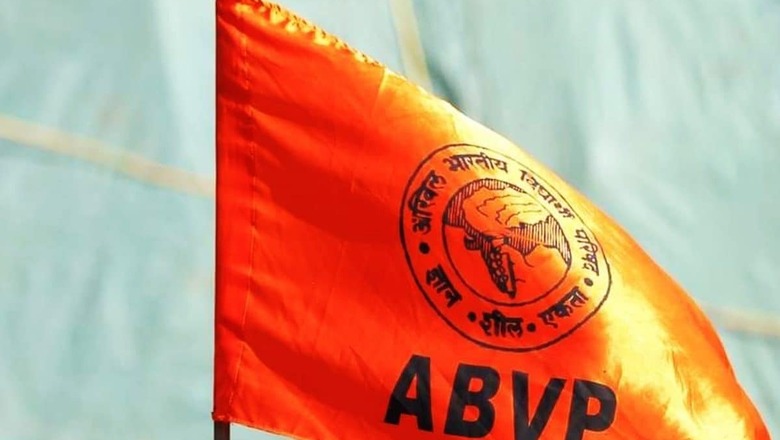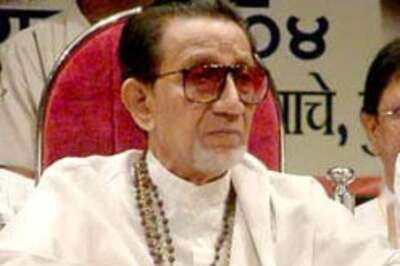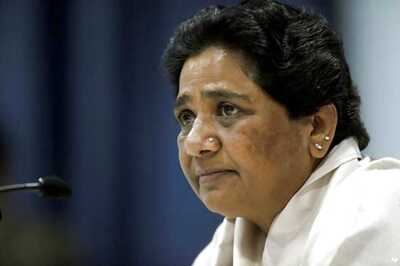
views
The two-volume book of Akhil Bharatiya Vidyarthi Parishad (ABVP) titled ‘Dhyeya-Yatra’ so eloquently depicts the genesis and growth of this nationalist organisation in post-colonial India. The formation, followed by its eventful evolution, tells us an exciting story of the ABVP’s meticulously planned and effectively executed efforts to foreground new narratives with nationalist perspectives which have so successfully supplanted the hegemonic left-liberal prejudices prevalent in the Indian academia for several decades.
No issues of national and even regional importance have been left untouched by the Parishad during its journey of more than seven decades with a specific view to create ambience and generate momentum for reawakening nationalist consciousness for the fulfilment of our national interests in an increasingly globalised world.
Affiliated with the Rashtriya Swayamsevak Sangh (RSS), a Hindu nationalist organisation and committed to national reconstruction along the lines of a framework given by Indian culture and knowledge systems, ABVP was established to render a nationalist response to the prevailing left-liberal pre-dominance in the students’ politics in Indian campuses. ABVP’s declared aim always remained to ensure that students get an enabling platform to articulate their nationalist thoughts and ideas without fear and an adequate encouragement to meaningfully contribute to the development of the nation.
Despite seemingly insurmountable obstacles it had to face in its early days due to hostile left-liberal hegemony prevailing in university campuses, ABVP always came forward and contested the claims made by the likes of National Students’ Union of India (NSUI), Students’ Federation of India (SFI) and others who have never left any stone unturned to mislead students on the questions of Kashmir, Northeast, democracy, dissent and violent tendencies of Maoists and Naxals who love to bleed the nation. The safety and supremacy of the nation has been sacrosanct for the ABVP. The nation has always remained at the centre of its planning and strategies as well as the execution of those plans to ensure social harmony along with economic advancement.
Such unflinching commitment to the idea of the nation makes it sensitive to the needs and requirements of particularly those students who come from marginalised sections of society such as Scheduled Caste and Scheduled Tribes, differently-abled and girls, especially from rural backgrounds. Such an inclusive approach of ABVP has been one of its commendable characteristics and has been mainly responsible for its increasing presence and growing influence in academic institutions in India. Consequently, it has been winning elections across colleges and universities of the country. Its leadership has been remarkably successful in keeping the faith of voters intact by working tirelessly for the welfare of students belonging to various sections of society. It is no wonder that its members have been elected to prominent positions in both regional and national-level organisations.
Established soon after Indian independence with the objective of nurturing nationalist ideals among students and since then known for its active participation in students’ politics and social and cultural issues, ABVP derives its ideological strength from the tenets of nationalism, cultural integration and social service. It vehemently emphasises the importance of maintaining national integrity, does a great deal to foster a sense of genuine pride in our cultural traditions and continues to push for educational reforms that draw upon Indian knowledge systems. This organisation wholeheartedly believes in empowering students so as to enable them to contribute meaningfully to the growth of the nation while preserving their cultural identity.
Expectedly, ABVP has played a significant role in shaping student politics in India. Overcoming many difficulties and negotiating gaps, fissures and contradictions of campus life, it has consistently advocated for the legitimate rights of students and kept itself actively engaged in student-centric issues like affordable education to all, hostel facilities, scholarships and the accessibility to quality education. Accordingly, it engages in a wide range of activities and initiatives that address the concerns of students as well as various other issues of society, including organising rallies, protests, seminars, debates and awareness campaigns on topics such as youth empowerment, national security, social justice, career counselling, leadership skills and radical restructuring of educational institutions along indigenous lines.
ABVP has indeed displayed a particular concern for educational reforms as is evident from its unequivocal acknowledgement and unqualified appreciation of the ontological and epistemological shifts the National Education Policy (NEP) had made to decolonise Indian education systems for the sake of reclaiming the importance of our mother tongues and the primacy of Indian knowledge systems. Following in the footprints of the likes of Swami Vivekananda and sage Shri Aurobindo, who insisted on imparting education in our own languages to enable students to develop not just skills for meaningful employment and economic progress but also awaken their soul to integrate their body, mind and heart for real liberation, ABVP understands the indispensability for educational and cultural decolonisation for the attainment of true ‘swaraj’.
So it is vociferously opposed to the assumptions behind Macaulay Minutes which were primarily responsible for the continuing cultural colonisation in the academia even after decades of political independence. Repudiating colonial assumptions behind Macaulay’s English Education Policy and celebrating decolonising traits and attributes of National Education Policy, ABVP wishes to make it abundantly clear that Indian students should get rid of the mindset which revolves exclusively around the Western languages, texts and intellectual traditions. Thus, ABVP strongly advocates for the inclusion of texts and resources from Indian knowledge systems in our academic curricula for a thorough decolonisation of the Indian mind.
As a student organisation that aims to promote cultural decolonisation and holistic development of young minds, imbued with nationalist fervour in an increasingly globalised world, ABVP recognises the fact that only a culturally confident and knowledge-centred country can positively contribute to the progress of not only India but also other parts of the world by sharing its extremely rich cultural heritage, knowledge systems and values.
These two volumes actually make a highly persuasive case for encouraging students to engage in international dialogue and intellectual exchange with the specific purpose of fostering cooperation and understanding between different nation-states. Simultaneously, they underline the importance of nation-building as a necessity for preserving our cultural distinctiveness and knowledge systems while actively engaging with other parts of the world in a mutually productive manner.
These two beautiful books brilliantly articulate the need that India, as an emergent nation, has to discharge its duties to fulfil the wish of its citizens who want the country to identify and religiously prioritise its responsibilities to build a strong foundation for providing leadership to the world within a span of 25 years.
The author is Assistant Professor of English at Rajdhani College, Delhi University. Views expressed in the above piece are personal and solely that of the author. They do not necessarily reflect News18’s views.



















Comments
0 comment